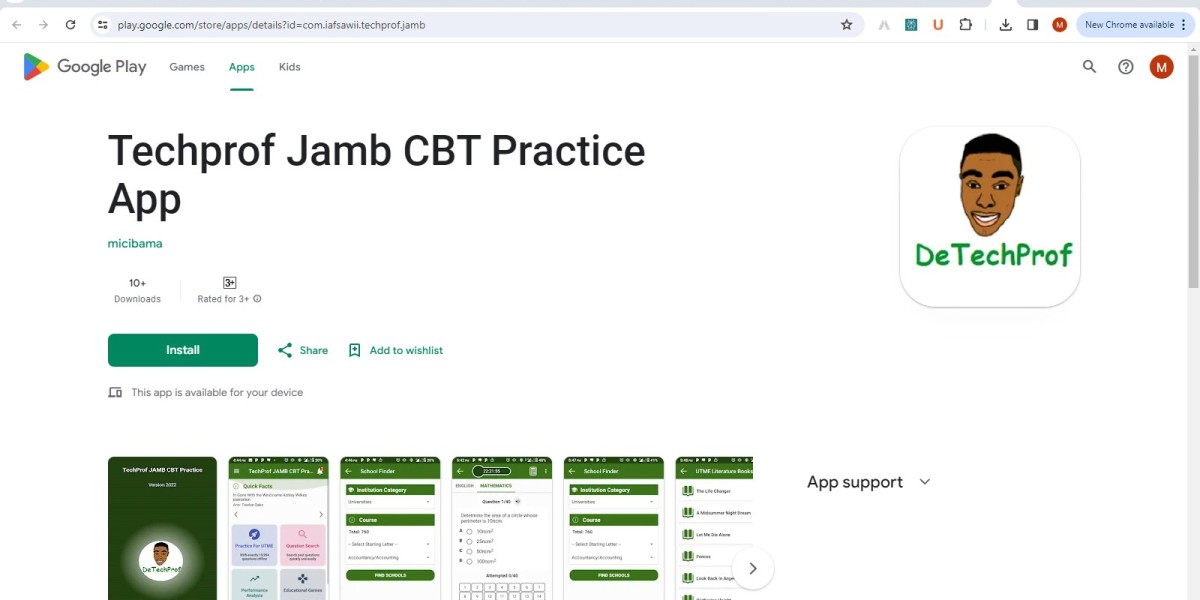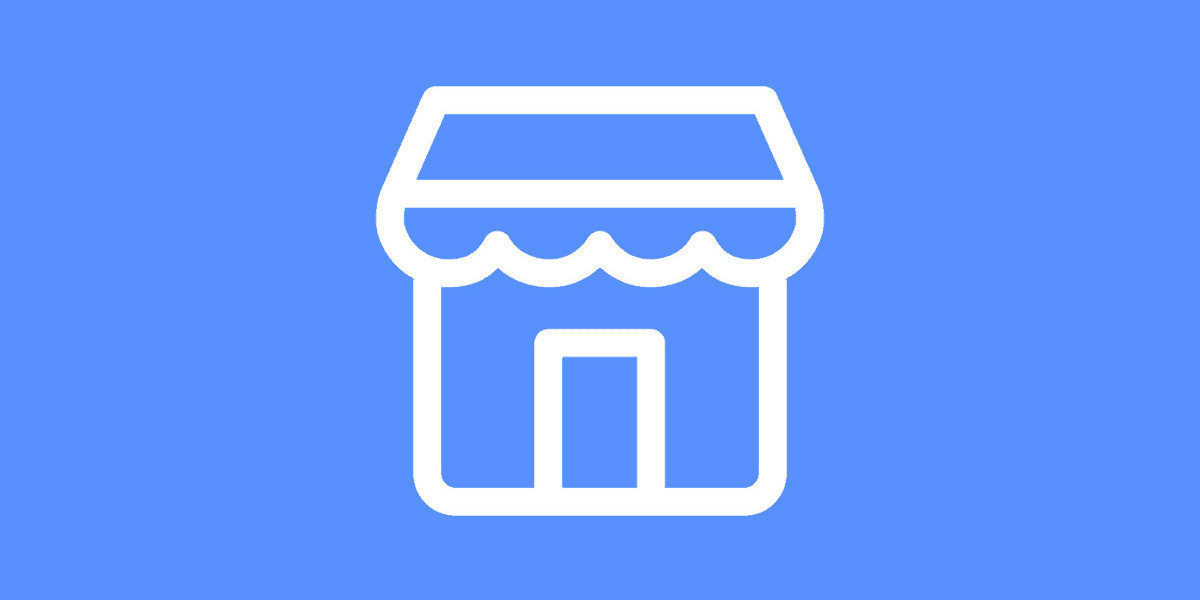Facebook Marketplace, initially launched in 2016, began as a simple platform for individual users to buy and sell items within their local communities. Drawing inspiration from the informal buying and selling groups that had organically sprung up on Facebook, the Marketplace aimed to streamline this process, making it easier for users to discover, buy, and sell items in one centralized location.
Over the years, the platform has undergone significant transformations. What started as a local classifieds-style platform has now expanded its horizons, allowing businesses to set up shop and reach potential customers. With its user-friendly interface integrated directly into Facebook's ecosystem, it provided a seamless experience for the vast user base already active on the social media giant.
The real game-changer was when businesses began recognizing the potential of Marketplace as more than just a platform for second-hand goods. Companies, both large and small, saw an opportunity to tap into a new sales channel. With the added advantage of Facebook's advertising tools, businesses could not only list their products but also promote them to a targeted audience, leveraging the platform's vast data on user preferences and behaviors.
Furthermore, the integration of Marketplace with other Facebook services, such as Pages and Shops, allowed businesses to create a cohesive brand presence. This integration meant that a potential customer could discover a product on Marketplace, visit the business's Facebook Page for more information, and even make a purchase without ever leaving the Facebook environment.
In essence, Facebook Marketplace has evolved from a simple peer-to-peer selling platform to a robust business tool, offering companies a new avenue to reach and engage with their customers.
Pros of Using Facebook Marketplace for Business
Massive Audience Reach
One of the most significant advantages of using Facebook Marketplace for business is the sheer size of its audience. With billions of active users, Facebook is one of the largest social media platforms globally. This vast user base translates to a plethora of potential customers for businesses. Whether a company offers niche products or mass-market goods, the chances of finding interested buyers on Facebook Marketplace are considerably high.
Moreover, the platform's design promotes local buying and selling, meaning businesses can effectively target their local communities. This local focus can be especially beneficial for small businesses looking to establish a strong local customer base. However, the platform's reach isn't just limited to local audiences. With the right strategies, businesses can also tap into broader markets, reaching out to potential customers from different regions or even countries.
The result of this massive audience reach? Increased visibility for business listings, which can lead to higher sales volumes and, ultimately, increased revenue.
Cost-Effective Platform
Another compelling advantage of Facebook Marketplace for businesses is its cost-effectiveness. Unlike many e-commerce platforms or online marketplaces that charge listing fees or take a commission on sales, Facebook Marketplace allows businesses to list their products for free. This absence of listing fees means that businesses can price their products more competitively, potentially leading to quicker sales and higher turnover.
Furthermore, the platform doesn't have hidden charges. While there are optional promotional tools that businesses can pay for to boost their listings' visibility, the basic act of listing and selling doesn't come with additional costs. This cost-effective nature of the platform can lead to higher profit margins for businesses, especially when compared to other online selling platforms that take a more significant cut from sales.
In essence, Facebook Marketplace offers businesses a platform where they can reach a vast audience without incurring high costs, making it an attractive option for companies of all sizes, from individual entrepreneurs to established brands.
Integrated Marketing Opportunities
Facebook Marketplace isn't just a platform for listing products; it's a part of the larger Facebook ecosystem, which offers a plethora of marketing tools and opportunities. Businesses can seamlessly promote their Marketplace listings across various Facebook services. For instance, a product listed on Marketplace can be shared on a business's Facebook Page, increasing its visibility to the page's followers.
Additionally, businesses can take advantage of Facebook Ads to promote their listings to a broader audience. With Facebook's advanced targeting capabilities, businesses can ensure their ads reach the most relevant audience based on demographics, interests, and behaviors. This targeted approach can lead to higher conversion rates and more successful sales.
Another powerful tool at businesses' disposal is retargeting. If a user views a product on Marketplace but doesn't make a purchase, businesses can retarget that user with ads, reminding them of the product and potentially nudging them towards a purchase.
Local and Global Selling Capabilities
Facebook Marketplace offers businesses the flexibility to target their sales efforts. While the platform has a strong focus on local buying and selling, businesses aren't restricted to their immediate communities. They can choose to expand their reach, targeting broader markets or even international audiences. This flexibility is especially beneficial for businesses with products that have a wider appeal or those looking to expand their customer base.
Moreover, the platform's advanced search and filtering options allow buyers to find products based on their location preferences, ensuring that businesses can effectively reach both local and global audiences.
Direct Customer Engagement
One of the standout features of Facebook Marketplace is the direct communication channel it offers between buyers and sellers. Unlike some e-commerce platforms where communication can be more structured and formal, Marketplace allows for real-time, direct messaging. This immediacy can be a game-changer for businesses.
For instance, if a potential buyer has a question about a product, they can message the seller directly through the platform, leading to quicker responses and potentially faster sales. This direct communication channel also offers businesses an opportunity to build trust and rapport with their customers. By providing prompt, helpful, and friendly responses, businesses can create positive buying experiences, leading to repeat purchases and positive reviews.
Furthermore, this direct engagement allows businesses to gather feedback, understand customer preferences, and even handle post-sale support, all of which can contribute to building a loyal customer base.
Intense Competition
With the growing popularity of Facebook Marketplace, more businesses are flocking to the platform to tap into its vast user base. This influx means that for any given product or service, there are likely multiple sellers, leading to a highly competitive environment. For businesses, this competition poses the challenge of ensuring their listings stand out amidst a sea of similar offerings.
Differentiating oneself in such a saturated market can be challenging. It requires businesses to be innovative in their product presentation, offer competitive pricing, and provide exceptional customer service. Additionally, with so many listings vying for attention, there's a risk of products getting lost in the shuffle, especially if they don't have unique selling points or if the listings aren't optimized for search and visibility within the platform.
Lack of Payment Standardization
Unlike some dedicated e-commerce platforms that offer standardized payment gateways, Facebook Marketplace leaves the payment method largely up to the discretion of the buyer and seller. This lack of standardization means businesses have to navigate a myriad of payment options, from cash on delivery to electronic transfers and third-party payment apps.
While this flexibility can be seen as an advantage, it also comes with its set of challenges. For one, businesses need to be wary of potential scams or fraudulent payment methods. Additionally, without a standardized payment system, there's a risk of chargebacks or disputes that can be harder to resolve compared to platforms with built-in dispute resolution mechanisms.
Limited Analytics and Insights
Data-driven decision-making is crucial for businesses in today's digital age. While Facebook Marketplace offers some basic insights, such as the number of views a listing has received, it lacks the comprehensive analytics provided by dedicated e-commerce platforms.
For businesses, this limitation means they might not have access to detailed data about their customers' behavior, preferences, or purchasing patterns. Without these insights, optimizing sales strategies can be more challenging. For instance, understanding which products are most popular, at what times listings get the most traction, or what demographics are most engaged can be crucial for refining marketing and sales strategies. The limited analytics on Facebook Marketplace can make such optimizations more of a guessing game than a data-driven strategy.
In conclusion, while Facebook Marketplace offers numerous advantages for businesses, it's essential to be aware of its limitations. By understanding these challenges, businesses can make informed decisions and develop strategies to maximize their success on the platform.
Potential for Scams and Frauds
The open nature of Facebook Marketplace, while offering flexibility and ease of use, also presents certain risks. One of the most significant challenges sellers face is the potential for scams and fraudulent activities. Dishonest buyers, armed with various tactics, can sometimes exploit unsuspecting sellers. Common scams include counterfeit money, bounced checks, or fraudulent electronic transfers. There's also the risk of "no-shows" where a buyer agrees to purchase an item but never shows up, wasting the seller's time.
Another concern is the "overpayment scam," where a buyer sends a check for more than the purchase price and asks the seller to refund the difference, only for the original check to bounce.
To mitigate these risks, sellers are advised to:
- Meet buyers in public places for in-person transactions.
- Verify the authenticity of checks or money orders.
- Be wary of buyers who make overpayments or have overly complicated payment requests.
Restrictions and Guidelines
Facebook Marketplace, like any platform, has its set of rules and guidelines designed to maintain a safe and trustworthy environment for its users. These guidelines cover a range of issues, from the type of items that can be listed to the manner in which transactions should be conducted.
For instance, certain items, such as firearms, drugs, or adult services, are prohibited from being listed on the Marketplace. There are also guidelines about honest representation of products, where sellers are expected to provide accurate descriptions and not mislead potential buyers.
Failure to adhere to these guidelines can have consequences. Listings can be removed, or in more severe cases, sellers can face temporary or permanent bans from the Marketplace. For businesses, this can be particularly concerning as it disrupts their sales channel and can impact their reputation.
It's crucial for sellers, especially businesses, to familiarize themselves with Facebook Marketplace's policies and ensure they remain compliant. Regularly reviewing and staying updated with any changes to the platform's guidelines can help sellers avoid potential pitfalls and ensure a smooth selling experience.
Case Studies: Businesses Thriving on Facebook Marketplace
1. Vintage Furniture Store Finds New Audience
A local vintage furniture store, previously relying on foot traffic and word of mouth, decided to list some of its unique pieces on Facebook Marketplace. The owner took high-quality photos, wrote detailed descriptions, and set competitive prices. Within weeks, the store saw a significant increase in inquiries, leading to a 30% boost in sales. The store also began offering refurbishing services, catering to the demand they identified through direct customer interactions on the platform.
Lessons Learned: Quality listings with clear photos and descriptions can make a significant difference. Direct communication with customers can also provide insights into additional services or products that might be in demand.
2. Handmade Jewelry Artist Expands Reach
An artist specializing in handmade jewelry had been selling primarily at local craft fairs. She decided to list her creations on Facebook Marketplace, targeting both local and broader audiences. By leveraging Facebook Ads, she promoted her listings to specific demographics interested in handmade crafts. The artist also offered limited-time discounts to drive sales. As a result, she not only increased her sales but also built a loyal customer base who eagerly awaited her new creations.
Lessons Learned: Using integrated marketing tools, like Facebook Ads, can help businesses target specific audiences. Offering promotions or discounts can also drive sales and build customer loyalty.
3. Tech Repair Shop Offers Special Deals
A tech repair shop, specializing in smartphone and computer repairs, used Facebook Marketplace to offer special deals and packages. They listed services like "Screen Repair Discounts" or "Full PC Tune-Up" and used the platform's promotional tools to boost their listings. The shop also engaged with customers in real-time, answering queries about repair times, costs, and more. This direct engagement led to a surge in bookings and a notable increase in repeat customers.
Lessons Learned: Offering special deals or packages can attract attention in a crowded marketplace. Engaging with customers directly can lead to increased trust and repeat business.
4. Boutique Fashion Store Goes Virtual
A boutique fashion store, facing decreased foot traffic due to external factors, turned to Facebook Marketplace as an alternative sales channel. They started by listing their best-selling items and offered bundle deals. The store also used Facebook Stories to showcase new arrivals and give virtual tours of their collection. This multi-pronged approach resulted in a steady stream of online sales, helping the store navigate challenging times.
Lessons Learned: Diversifying sales channels can help businesses adapt to changing circumstances. Using multiple features of the Facebook ecosystem, like Stories, can enhance the shopping experience for customers.
In conclusion, these case studies highlight the versatility of Facebook Marketplace as a platform for businesses of all sizes and across various sectors. By understanding the platform's features and leveraging its tools, businesses can achieve remarkable success and growth.
Is Facebook Marketplace good for businesses?
Facebook Marketplace can be beneficial for businesses due to its vast user base, integrated marketing tools, and cost-effective platform. However, its effectiveness varies based on the type of business and the target audience.
What are the benefits of Facebook Marketplace for businesses?
Some benefits include access to a large audience, no listing fees, direct customer engagement, and the ability to leverage Facebook's promotional tools.
Is selling on Facebook Marketplace worth it?
It can be, especially for businesses targeting local customers or those looking for a cost-effective platform. However, businesses should weigh the benefits against potential challenges like competition and payment security.
What is the difference between Facebook Marketplace and Facebook business?
Facebook Marketplace is a platform for individual users and businesses to list and sell items. In contrast, a Facebook Business Page is a public profile specifically created for businesses, brands, celebrities, and organizations.
What are the fees for Facebook Marketplace?
Listing items on Facebook Marketplace is generally free. However, if businesses choose to promote their listings or use the "Checkout" feature (where available), there might be associated fees.
How do I increase sales on Facebook Marketplace?
Strategies include using high-quality photos, writing detailed descriptions, setting competitive prices, promoting listings, and engaging promptly with potential buyers.
Does Facebook make money from Facebook Marketplace?
While listing is free, Facebook can generate revenue from ads and the promotion of listings. Additionally, if sellers use the "Checkout" feature, Facebook may charge a fee.
What type of business is Facebook Marketplace?
Facebook Marketplace operates as a C2C (consumer-to-consumer) and B2C (business-to-consumer) platform within the larger Facebook ecosystem.
How do Marketplace businesses work?
Marketplace businesses act as intermediaries, connecting buyers and sellers. They provide a platform for transactions and may earn revenue through listing fees, transaction fees, or advertising.
What is Marketplace vs. market in business?
A "market" refers to a broad area where buyers and sellers come together to transact, while a "marketplace" is a specific platform or space where these transactions occur.
What are the 3 sides of the marketplace?
Typically, marketplaces have two sides: buyers and sellers. However, some refer to a third side, which could be third-party service providers, advertisers, or platform administrators.
What are the three types of online marketplace?
The primary types are: B2C (Business-to-Consumer), B2B (Business-to-Business), and C2C (Consumer-to-Consumer).
What is an example of a marketplace in business?
Examples include Amazon (B2C), Alibaba (B2B), and eBay (C2C).
Conclusion
Facebook Marketplace, with its vast user base and integrated features, undeniably offers a plethora of opportunities for businesses. From local artisans to established stores, many have found success on this platform, tapping into a new and engaged audience. The benefits, such as cost-effectiveness, direct customer engagement, and the potential for both local and global reach, make it an attractive option for many sellers.
However, like any platform, it comes with its set of challenges. The intense competition means businesses have to continually innovate and optimize their listings. The lack of standardized payment methods and potential for scams necessitates caution and vigilance. Additionally, the platform's restrictions and guidelines mean businesses must always be on their toes to ensure compliance.
For businesses considering Facebook Marketplace, it's essential to weigh these benefits against the challenges. Does the platform offer the right audience for your products? Can you navigate the potential pitfalls and ensure safe and secure transactions? Is the direct engagement model something that aligns with your business's customer service goals?
Furthermore, assessing if Facebook Marketplace aligns with broader business goals and strategies is crucial. For some, it might serve as a supplementary sales channel, while for others, it might become the primary platform. It's also worth considering how it fits into a broader digital marketing strategy, especially given the promotional tools available within the Facebook ecosystem.
In conclusion, while Facebook Marketplace offers undeniable potential, it's not a one-size-fits-all solution. Businesses should undertake a thorough assessment, considering both the opportunities and challenges, to determine if it's the right platform for their unique needs and goals.



